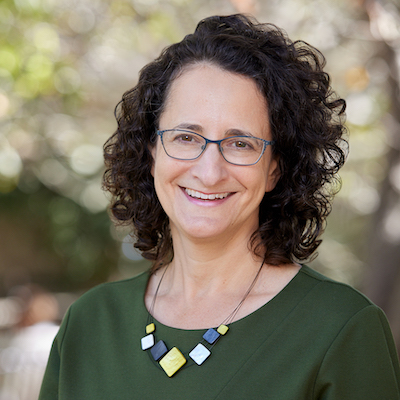3 ways AI could change your sustainability recruitment in 2024 and beyond
As artificial intelligence tools proliferate, we need to understand their potential — and limitations. Read More

AI can help screen applications
Artificial intelligence is permeating all fields and disciplines and taking a more prominent role in the workplace. From my sustainability recruiting perch, I’m observing how AI is infiltrating sustainability on one side and recruitment on the other, but what about where they cross over?
Here are three ways AI will impact sustainability recruitment.
1. AI will support sustainability talent attraction, sourcing and development
Whether a company is hiring sustainability professionals directly or working with a recruitment firm, AI plays an important role in each stage of the process, particularly to meet the increased demand for specific sustainability skills or roles such as ESG controller, LCA analyst or GHG modeler. For example, tools such as Textio help craft job descriptions to build stronger talent pipelines, and the AI-based platform Entelo can support sourcing a diverse candidate pool.
AI can also help screen applications, based on job requirements and even company culture, and can help prepare semistructured interview questions. Tools such as HireVue, Pymetrics and Scoutible can help assess candidates more equitably by focusing on more objective measures such as testing cognitive abilities or analyzing a candidate’s facial responses.
LinkedIn is an important platform for recruitment, and its new AI tool Recruiter is likely to have a big impact across the sector. Recruiter provides support for developing hiring goals, searching for candidates and personalizing communications. But with the emergence of more AI applications for sustainability recruitment, the technology could be a credible threat to LinkedIn for sourcing candidates.
2. AI will feature more in existing sustainability profiles
In my recent conversations with chief sustainability officers, the topic of AI came up several times. The bottom line: AI is a growing part of corporate sustainability and therefore the sustainability roles we’re recruiting.
For Dave Stangis, partner and chief sustainability officer at Apollo, AI is part of the tech skills CSOs will need in 2024: “If I had to identify new attributes of note, they would include leveraging data governance and tech broadly, including the role that AI can play in driving productivity or other use cases within their organizations.”
This is the case for sustainability roles more broadly, too. As AI becomes ubiquitous in sustainability, we anticipate more clients will start seeking candidates with AI experience in everything from calculating emissions to optimizing renewable energy solutions.
Despite the fear that AI could replace roles, it can support complex compliance requirements and even boost innovation. Charlene Lake, chief sustainability officer and senior vice president, Corporate Responsibility at AT&T, noted the potential of AI: “To truly navigate the sustainable evolution, CSOs must develop an understanding of AI, which holds promise of being one of the greatest catalysts for sustainable innovation that we’ve seen in our lifetime.”
3. AI could change the roles you’re recruiting and help plug the skills gap
The increasing importance of tech and AI is evident from two sides: It’s mentioned more frequently as a skill on candidates’ resumes, and job descriptions increasingly include a bullet on proficiency in AI. AI is already being used in sustainability roles, particularly in climate reporting and broader ESG disclosure.
AI has a potential role to play in bridging the sustainability skills gap, and early adopters are expected to drive the transition to net zero. While AI creeps into existing roles, it’s also likely to create entirely new ones. According to World Economic Forum’s 2023 Future of Jobs report, “AI and Machine Learning Specialists top the list of fast-growing jobs, followed by Sustainability Specialists and Business Intelligence Analysts.”
Sophia Mendelsohn, chief sustainability and commercial officer and co-GM of SAP Sustainability, says it best: “We will see sustainability professionals getting much deeper levels of support from technology like AI. To be most successful, they’ll have to fundamentally rethink their traditional roles and use the new tools to automate many of their functions in areas like data gathering, management, and analysis.”
Be alert — AI is here to stay
While we wait for the first laws about AI to be drafted, it’s important to be mindful of the limitations of the tools. AI-based recruitment tools are in their infancy, so while we’re observing this fast-moving market with interest, we’re also aware that what’s available today might be obsolete a year from now.
Yet to ignore AI would be a mistake — it would be like saying the invention of the wheel is just a phase. To harness its potential, we need to understand how to leverage the value of AI — specifically its impact on the sustainability recruitment process and the roles we will fill in the future.













